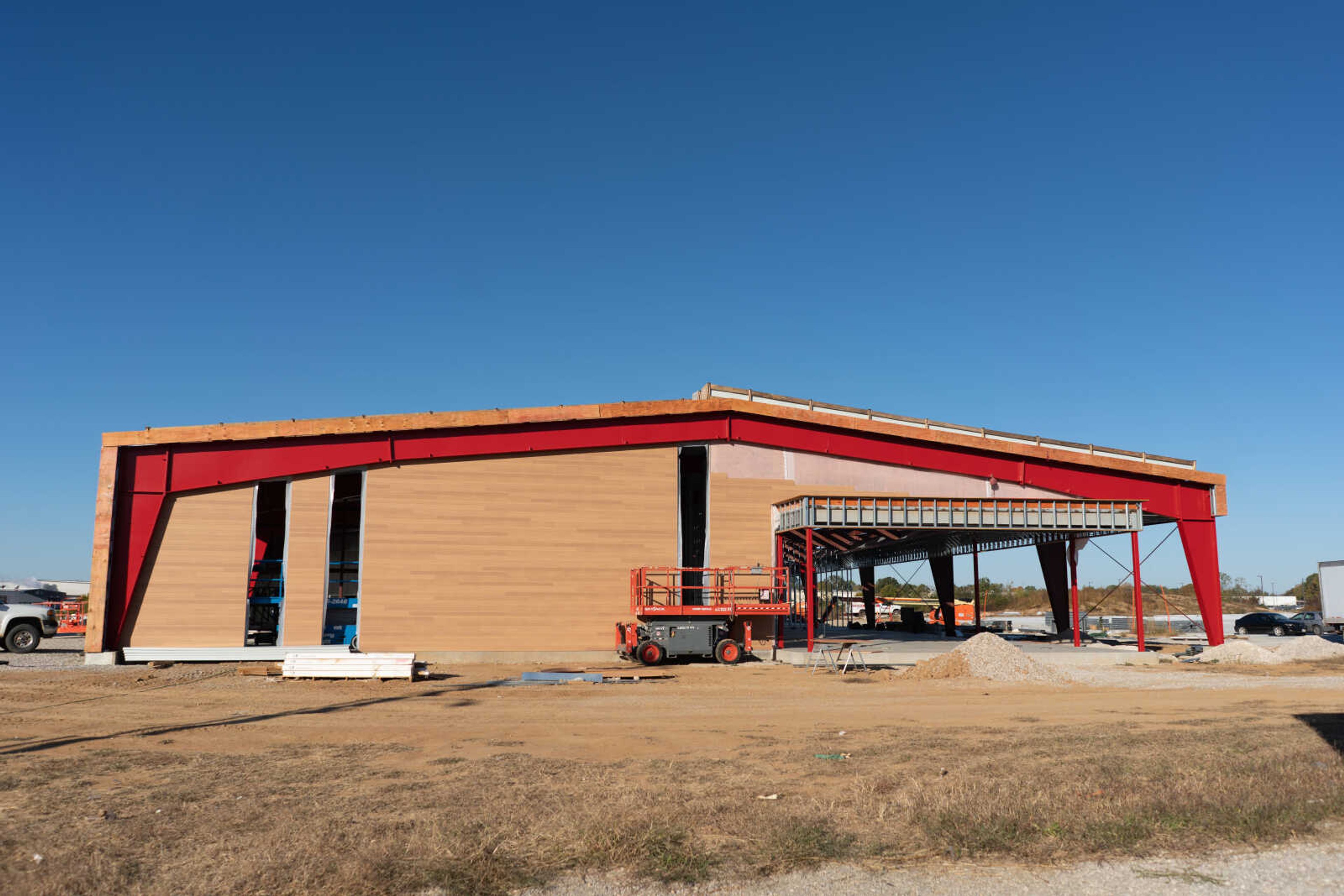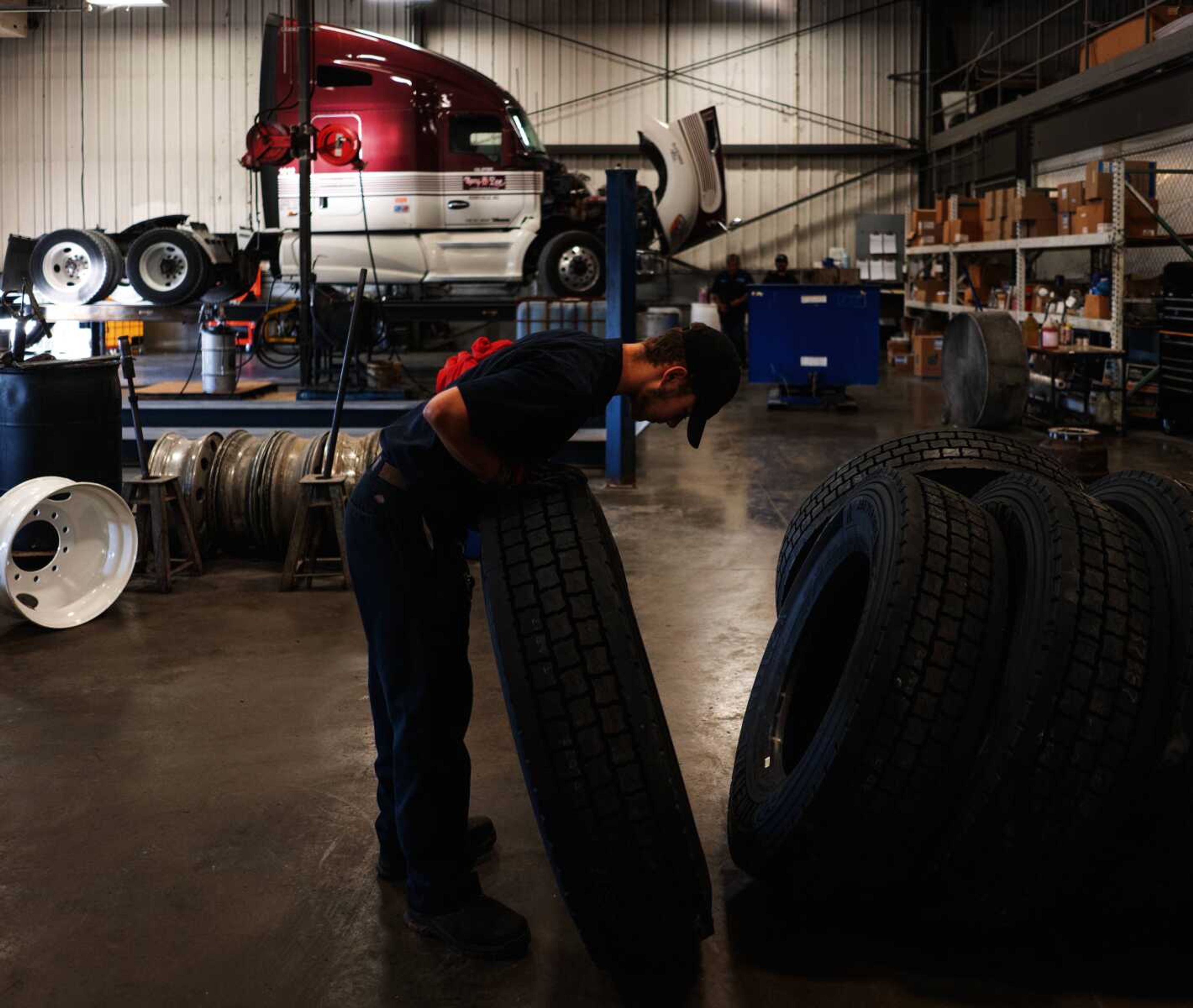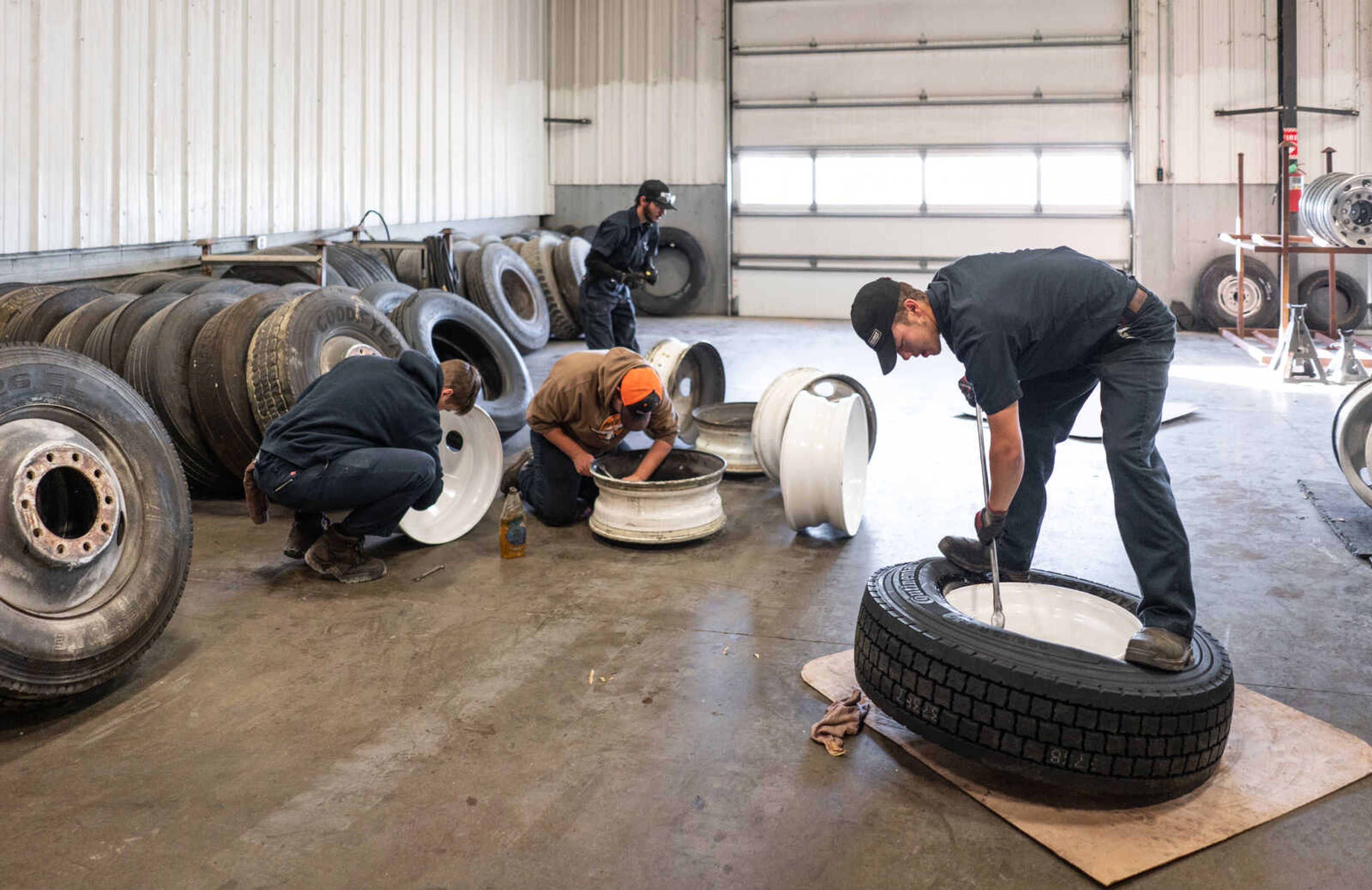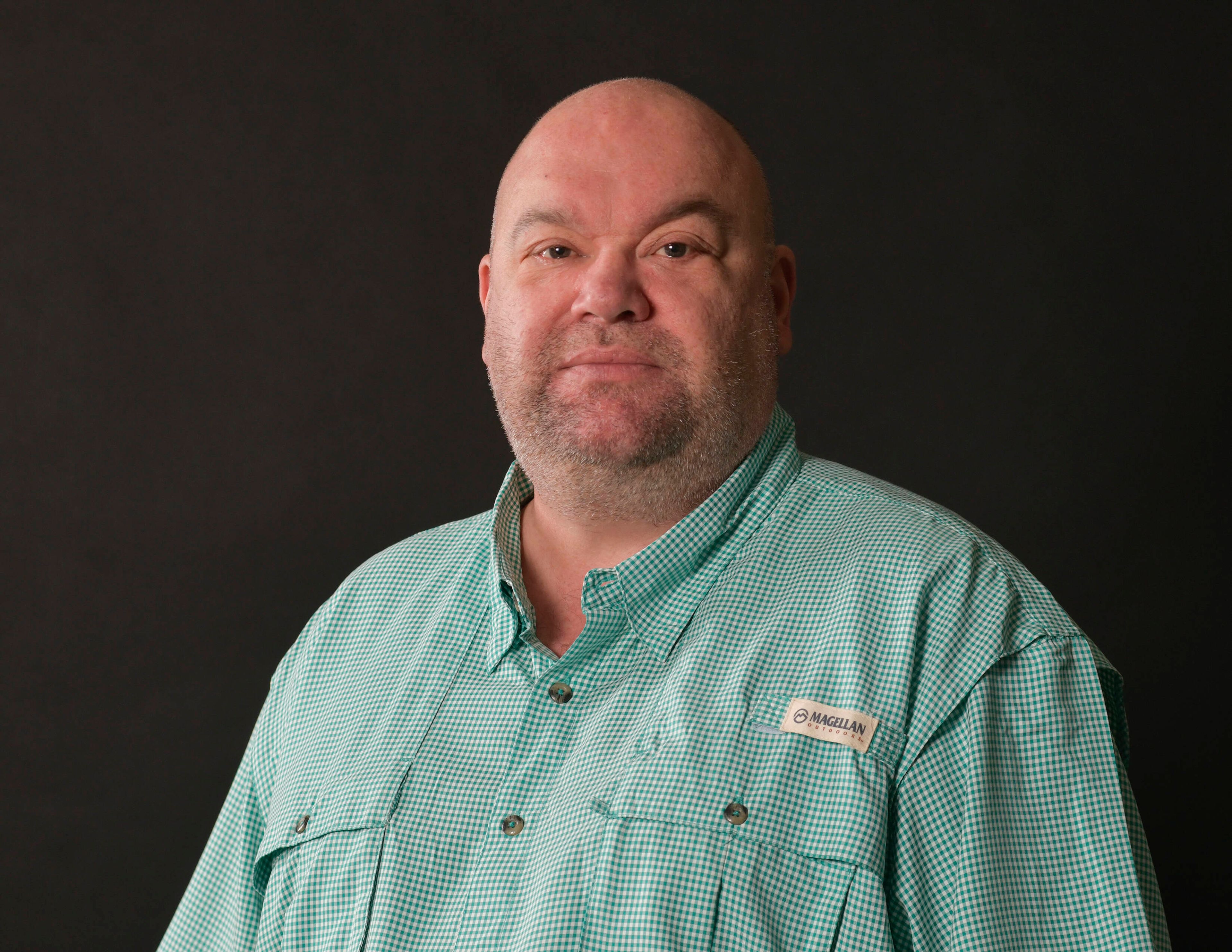Industrial training organizations build relationships with employers
Like a diesel engine mechanic troubleshooting a problem, entities providing industrial training and education in Southeast Missouri are employing a number of tools to ensure potential employees have the skills and knowledge they need to be successful for themselves and their employers...
Like a diesel engine mechanic troubleshooting a problem, entities providing industrial training and education in Southeast Missouri are employing a number of tools to ensure potential employees have the skills and knowledge they need to be successful for themselves and their employers.

In the Southeast Missouri markets of Cape Girardeau and Perryville, two such entities are Ranken Technical College and the Career and Technology Center, which is part of Cape Girardeau’s public school district. Both organizations use similar tactics to alleviate the age-old lament — “it’s hard to find good help.” Among them: advisory committees stacked with business and industry leaders in tune with local needs, partnerships with particular industries that provide real-world experience in real time and a focus on “soft” skills, those tangible traits employees need to have.
Advisory committees
Brock Crowley, director of Cape’s Career and Technology Center, explained that for each of the center’s industrial training programs there is an advisory committee eyeing not only the existing curriculum but looking into the future.
“We show them what we are teaching, what we have incorporated, not just the training but soft skills also,” he said. “Does the curriculum meet the needs? Where do we need to improve? What can we do to help you as the local business owner to get you a better employee?”
Crowley said many advisory committee members include area employers, experienced workers in the various fields and instructors from other educational facilities.
“We are more than willing to have anybody that is involved in any of our programs come be part of our advisory committees,” he noted. “We need people in business and industry as much as they need us. That way, we are making sure that we are training these students the best we possibly can to prepare them to get out into the workforce.”
Becky Mercurio, admissions coordinator for Ranken in Perryville, outlined a similar philosophy.
“Those advisory board meetings are where we get the knowledge of what direction we need to go in, what industry needs, what’s coming up, what needs to be trained on and what we need to change or upgrade,” she said.

Partnerships
If the advisory panels provide training and education roadmaps, partnerships with local industries are where the employee rubber meets the employer road.
At its facility in the heart of Perryville’s industrial district — a TG Missouri building — Ranken Technical College is churning out potential employees who have marketable hard skills and knowledge in areas such as welding, diesel technology and information technology. Based in St. Louis and now with several campuses across Missouri, Ranken’s history dates to 1907. Founded by David Ranken Jr. with an endowment of $1 million, the institution is a private not-for-profit educational institution based on the premise of instilling a sense of pride in the “dignity of labor.”
Ranken’s programs involve in-class instruction and internships. Mercurio explained that students spend equal time in the classroom and in industrial settings. A student in the industrial technology program — geared toward providing a range of industrial skills, such as maintenance operations/systems, safety, electrical, piping and machine rigging — will spend several weeks learning about a skill and then spend an equal amount of time interning with an employer to practice that skill in a real-world environment.
Dan Kania, dean of academic affairs, said applying recently learned skills reinforces the training, noting that employers compile “credentialing achievement reports” that allow supervisors to note that students are proficient in their work.
“You get the basic skills to go out into industry and build on those. You have a multi-skill, multi-craft technician when they come out,” he noted. “When they go on the internship, they are getting exposed to particular machines and that is where the customization really goes to a new level. Not only the particular machines but the company culture. That is where an employer can show this is a good place to work and these are the expectations, and that develops a relationship.”

After completing segments of training, Ranken’s students, when applicable, take National Incident Management System credentialing tests, enabling them to build a portfolio of assessed skills and knowledge.
Coupled with generation education courses taken online, Ranken’s industrial training allows students to complete associate degrees in technology or science.
One industrial partnership Ranken has in Perryville is with the Gilster Mary Lee Corp. The company’s diesel mechanic shop is responsible for keeping a 300-vehicle fleet on the road. Ranken students work alongside Gilster employees.
Randy Lobbig, fleet maintenance manager, said the program has been a win-win for the students and the company.
“They work on live jobs. They get experience on a little bit of everything on new equipment,” he explained. “If they were strictly in a school environment, they would probably get donated engines and things like that that don’t necessarily have to run again. Everything here has to go. It’s a little bit of an under-fire deal. Everybody is looking over their shoulder as they’re working.”
Lobbig said the interns work part-time for the company and many of them earn full-time employment after graduating the program.
“Right now, most of our (hourly pay) mechanics are Ranken graduates. We are pretty much staffed, at least in the truck shop, with Ranken graduates,” he said. “We’ve had pretty good success with them. We know what they know before we hire them.”
Kania said the program is a significant benefit to Gilster Mary Lee.
“We are part of what they do to keep their fleet running,” he noted.
Supporting industry is the key to industrial training, he contended.
“Industry is really the key to having a good strong community overall, and keeping a good, skilled workforce for those companies and industries is an important factor to having them be sustainable in the community,” Kania said.
Welding, coding, HVAC and more at the Career and Technology Center
With regard to strengthening relationships with area employers, CTC has begun a program that has long-ranging effects, Crowley said.
A youth apprentice program for welding students is allowing students younger than 18 to begin working in welding shops as part of a 4,500-hour training and employment odyssey. The U.S. Department of Labor and state government offices are part of the program for students to begin in the summer after their junior year of high school.
Crowley said one of the program’s goals is to help businesses retain the welders as they progress, earning more along the way as they meet competencies and reach benchmark hours.
“We will be working with them and tracking them long after they have left here,” he said.
Another CTC partnership is with Codefi, a tech incubator in Cape Girardeau, which has developed courses for one of the center’s programs.
“We are using a curriculum for second-year students in our coding and programming program. That creates not only a curriculum they go through but internship opportunities,” he explained.
Crowley pointed to advanced HVAC training and a blueprint reading program suggested by local companies, such as Boulder Construction, as industry-driven advancements.
Also, Workforce Wednesdays at the center allow employers to meet with students.
“It gets students exposure to local business and industry, and it gives local business and industry exposure to our students who are currently in our programs as potential candidates for hire later on,” Crowley said.

Soft skills
A hallmark of Ranken’s programs is a focus on skills not necessarily related to a particular job but things essential to being a good employee — punctuality, interpersonal communication, attention to detail. In Ranken’s terminology, these facets of an employee’s performance involve “work ethic.”
“The students get a work ethic grade on their transcript. If an employer is looking at that transcript, they see what they are getting ahead of time,” Mercurio said.
Kania stressed the soft skills component of industrial training is key to an employee’s success.
“It is so important that if the student fails more than half of their semesters on work ethic, then they will not graduate,” he noted. “To promote the dignity of labor, that is why the work ethic is a component of what we do for our students. Our mission is to create a workforce to promote the dignity of labor.”
CTC’s Crowley said the center’s focus on soft skills includes several initiatives.
“We work on resumes. We work on interview skills. We practice those things so, hopefully, our students are ready to go out and get hired,” he said. “We want to be known for supplying good workers, reliable workers. We can teach them what they need to know in, say, an auto body shop, but we need them to show up on time, be able to communicate, be able to pass a drug test.”
Mock interview days, in which area employers conduct interviews with students to give them practice, provide real-world experience.
“We had 30 students hired from Mock Interview Day last year,” he noted.
Another component is Make an Impression Monday, a simple idea to improve interpersonal skills in which instructors greet students as they come into the center.
“Now, we have kids coming up to us and shaking our hands and looking us in the eye and greeting us. That connection ... has been a focus,” Crowley noted.
Whether it is through teaching soft skills, hard skills or internship and on-the-job experience, CTC and Ranken are both seeking to address the need for skilled workers in Southeast Missouri.

Connect with the Southeast Missourian Newsroom:
For corrections to this story or other insights for the editor, click here. To submit a letter to the editor, click here. To learn about the Southeast Missourian’s AI Policy, click here.







